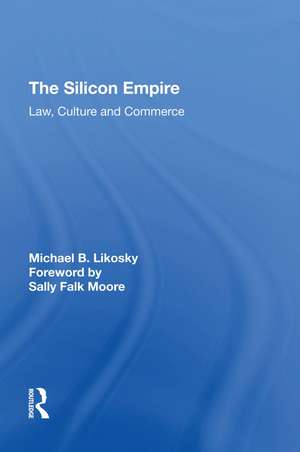The Silicon Empire: Law, Culture and Commerce
Autor Michael B. Likoskyen Limba Engleză Paperback – 18 sep 2018
Preț: 185.08 lei
Preț vechi: 230.95 lei
-20% Nou
Puncte Express: 278
Preț estimativ în valută:
35.41€ • 38.59$ • 29.84£
35.41€ • 38.59$ • 29.84£
Carte tipărită la comandă
Livrare economică 23 aprilie-07 mai
Preluare comenzi: 021 569.72.76
Specificații
ISBN-13: 9781138622821
ISBN-10: 1138622826
Pagini: 255
Dimensiuni: 154 x 228 mm
Greutate: 0.47 kg
Ediția:1
Editura: Taylor & Francis
Colecția Routledge
Locul publicării:Oxford, United Kingdom
ISBN-10: 1138622826
Pagini: 255
Dimensiuni: 154 x 228 mm
Greutate: 0.47 kg
Ediția:1
Editura: Taylor & Francis
Colecția Routledge
Locul publicării:Oxford, United Kingdom
Cuprins
Contents: Foreword; Introduction: cultural imperialism and transnational commerce. Dual Legal Orders: Variation and oligarchic states; Compound corporations; Dual legal orders. High Tech Promises: Proto-Malaysia; Infrastructure for commerce; Culture for commerce; Human rights and commerce; Conclusion: where we are and how we might move forward; Bibliography; Subject index; Index of law cases.
Descriere
This book analyzes the changing policies in post colonial states of Malaysia as it realizes its economic ambitions in the world today. It sets forth several ideas for the analysis of development in post-colonial states: the dual legal order, the oligarchic state and the compound corporation.
